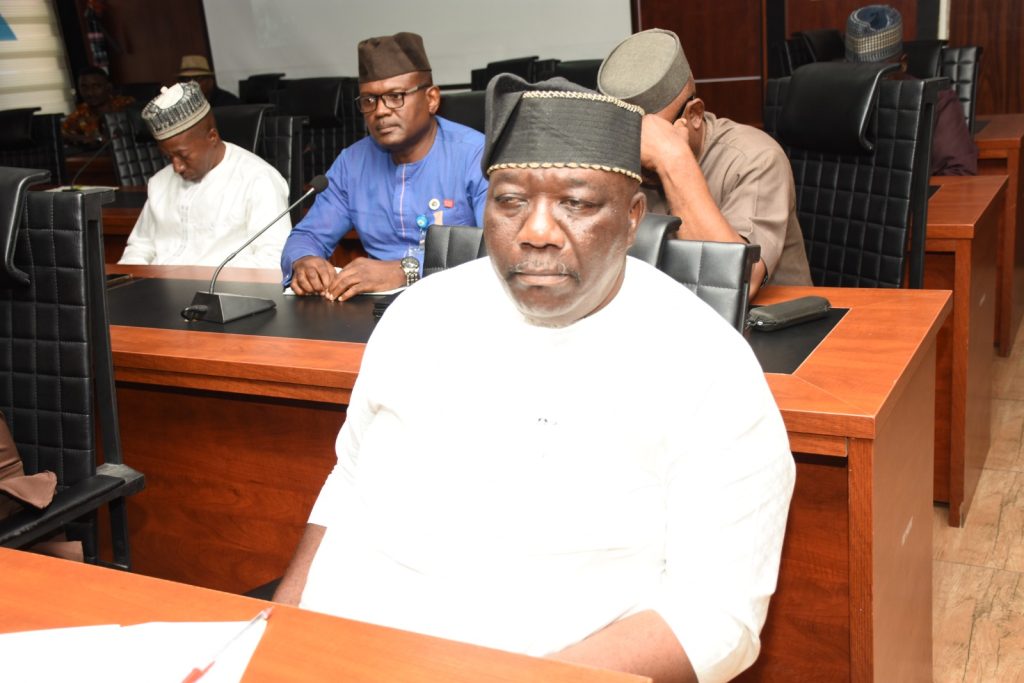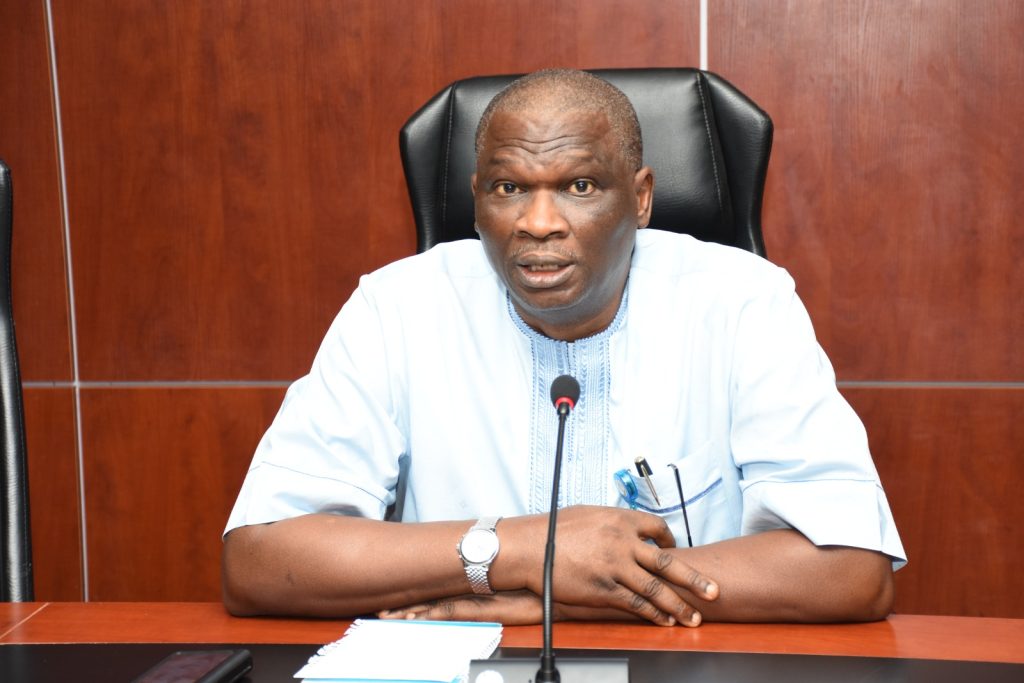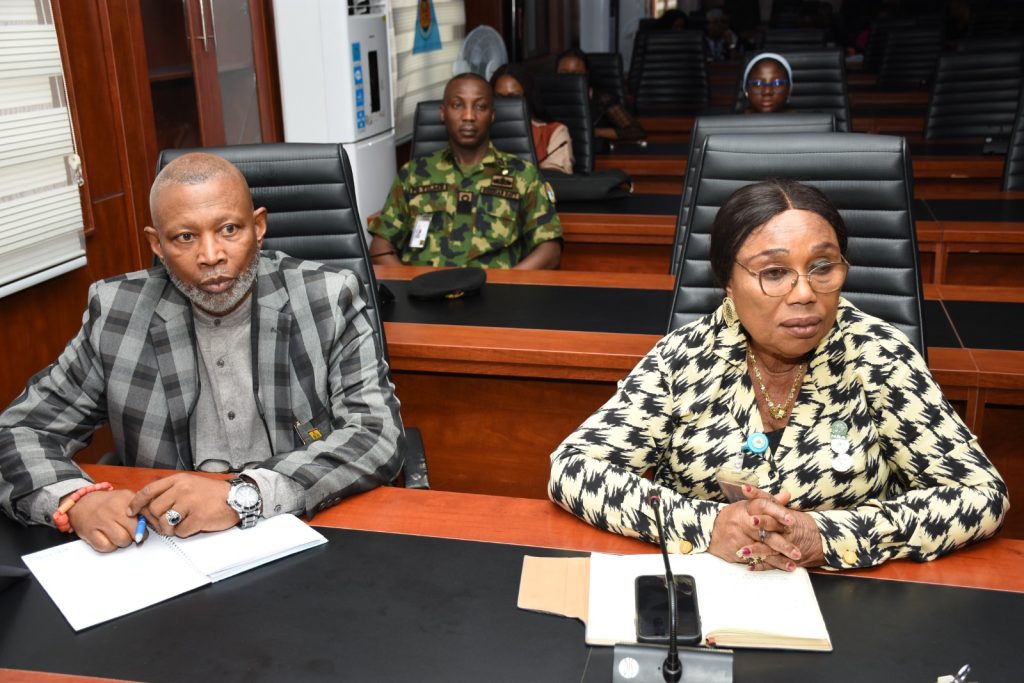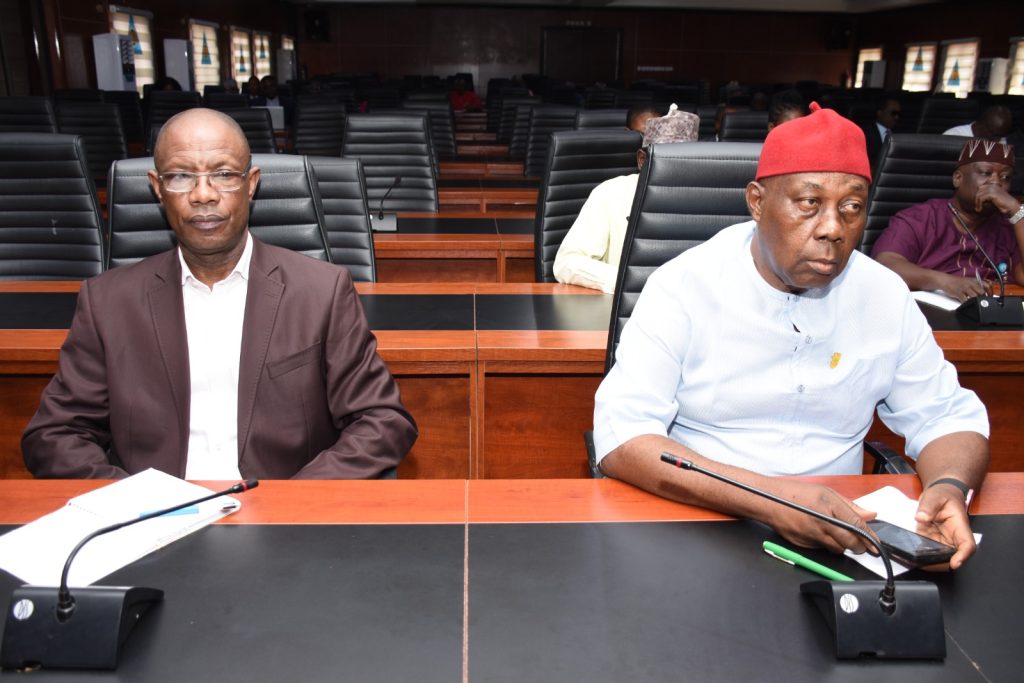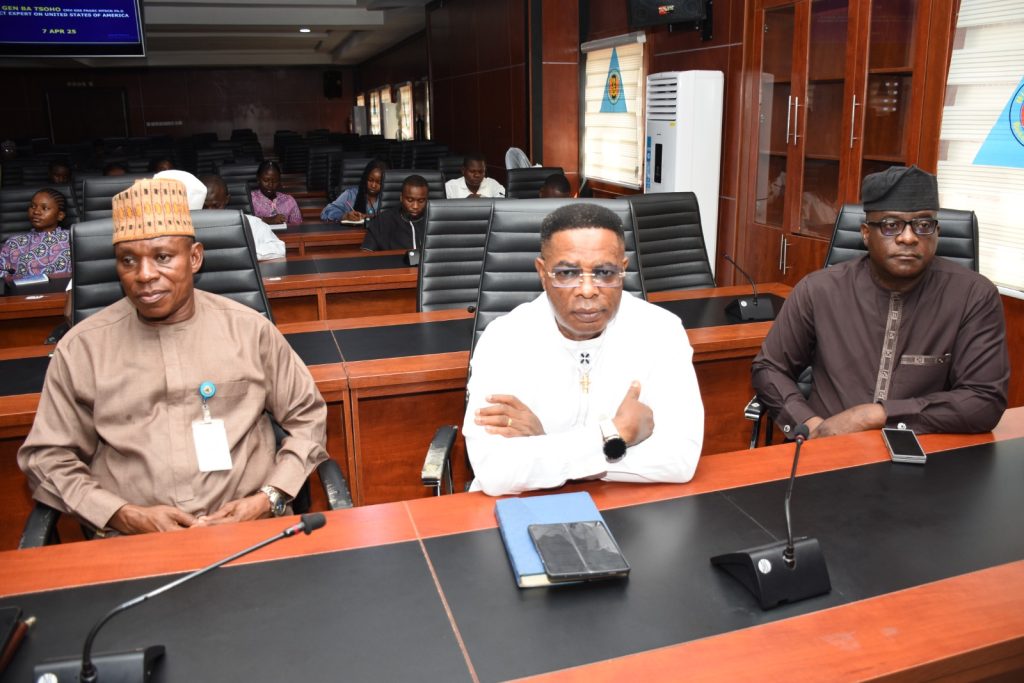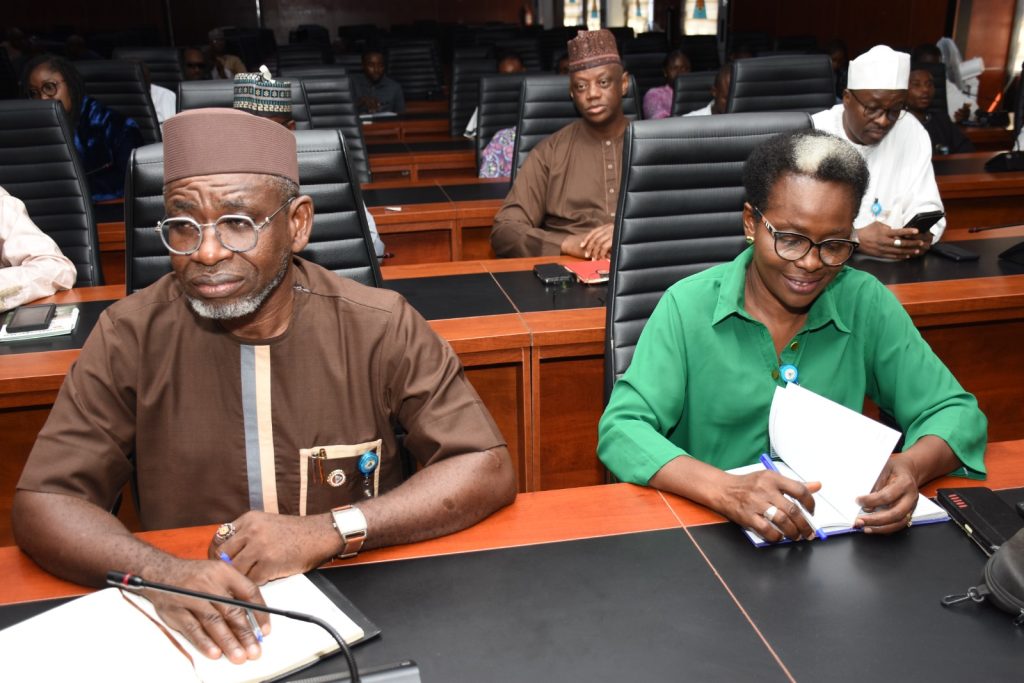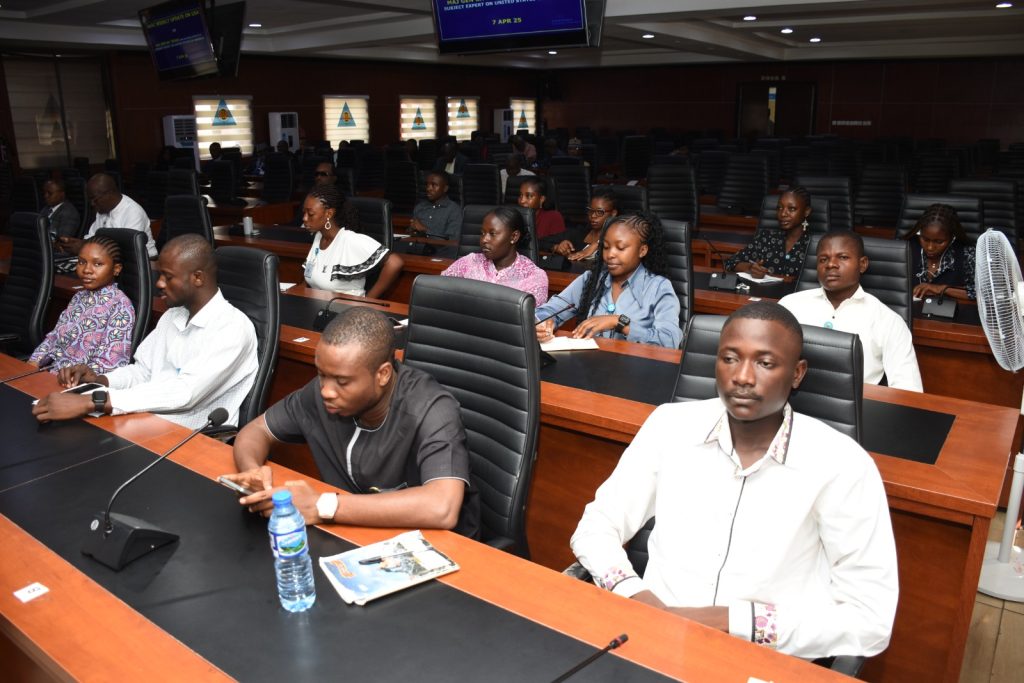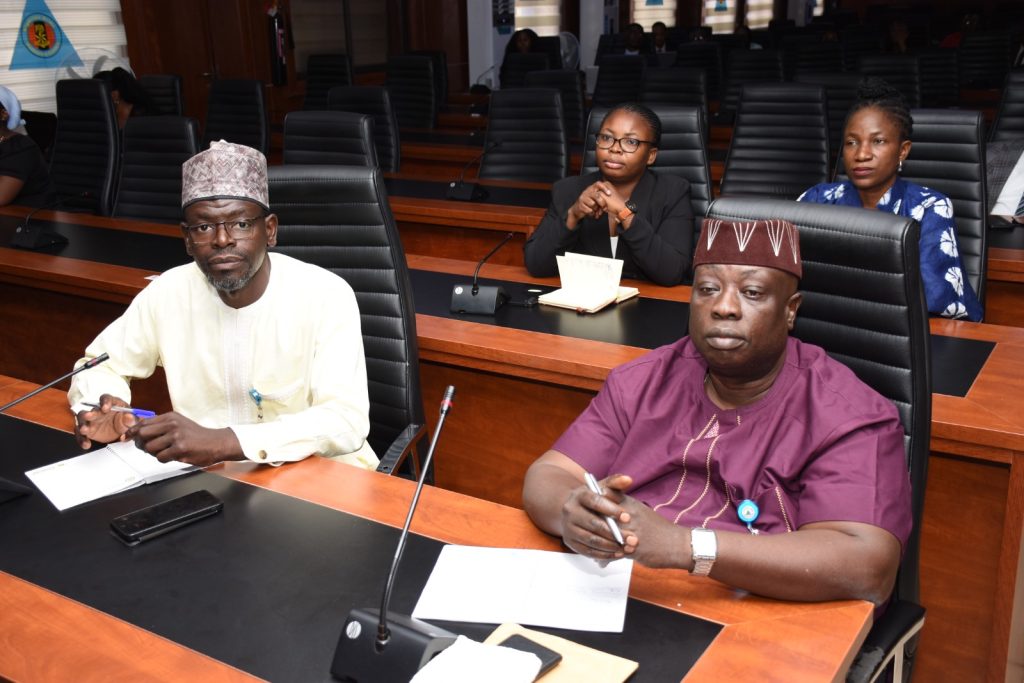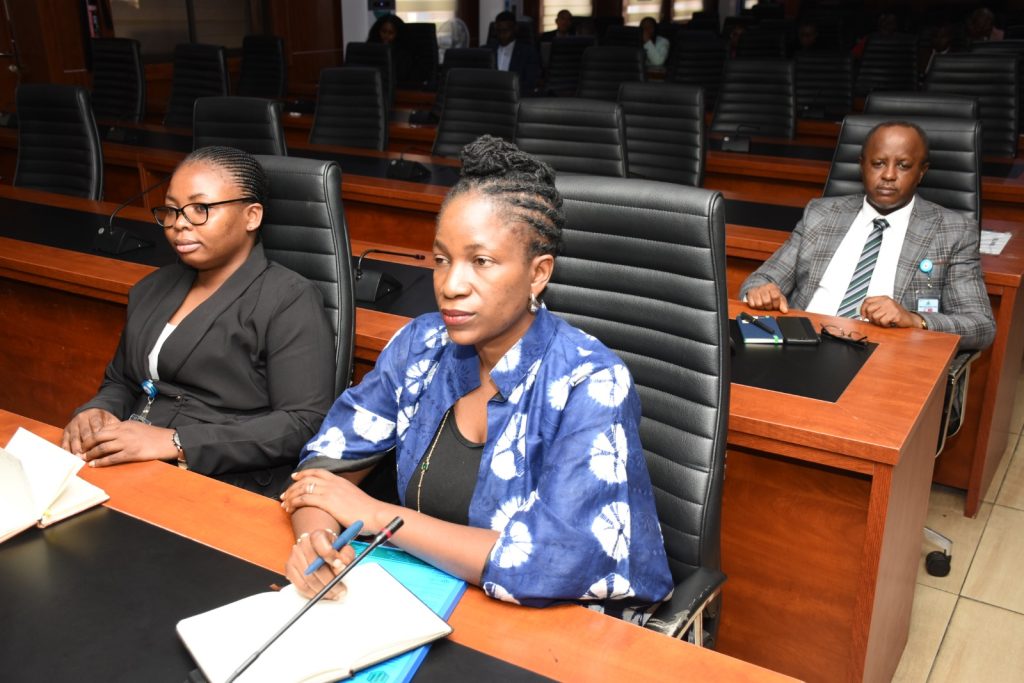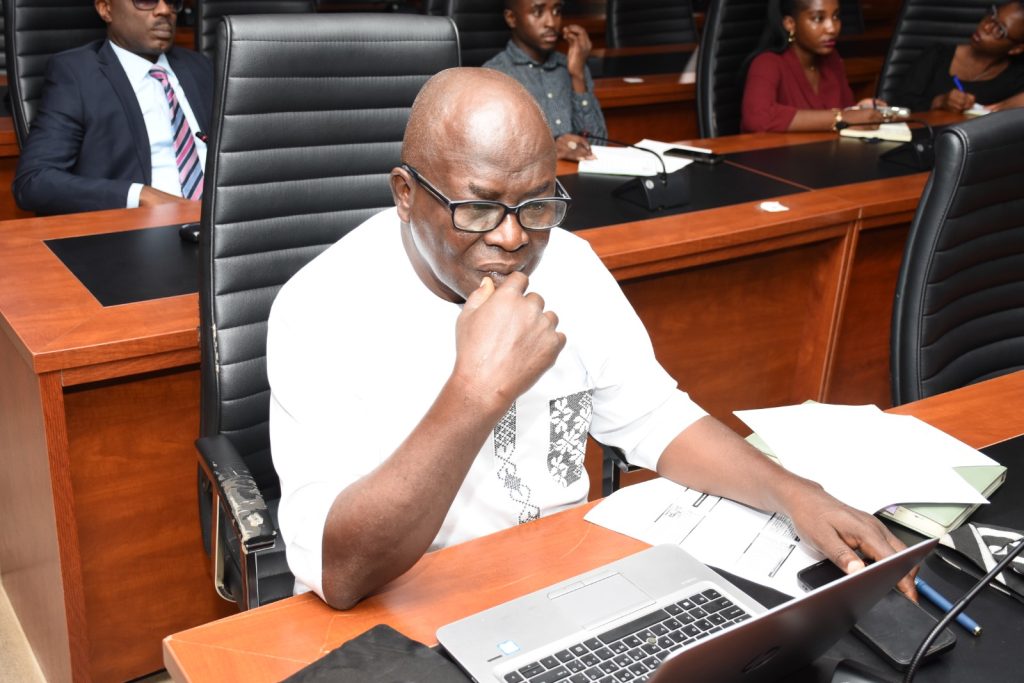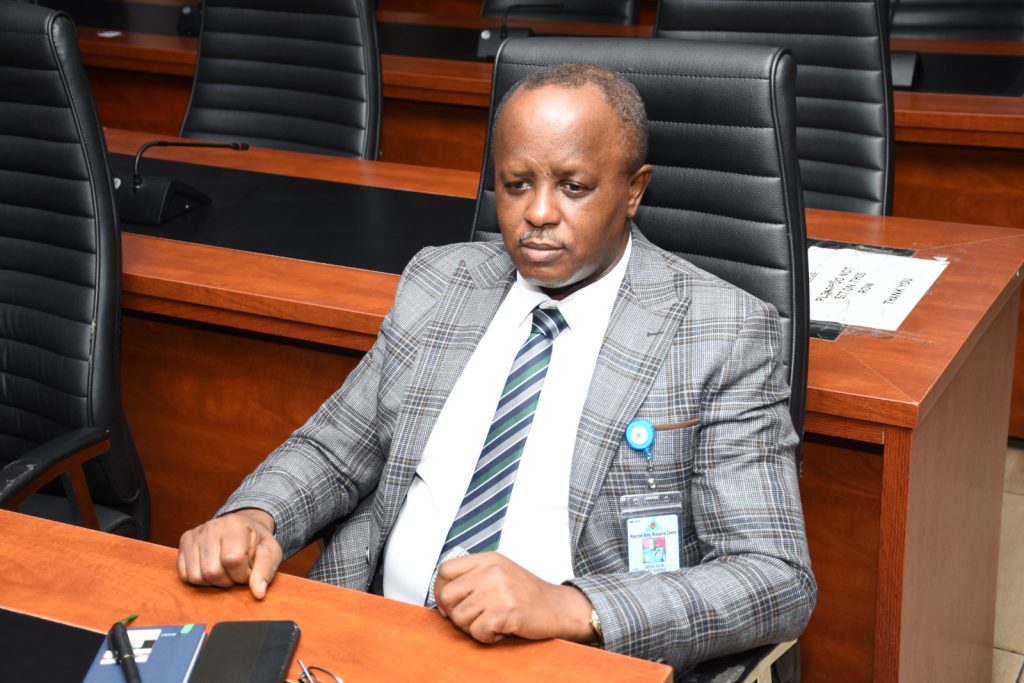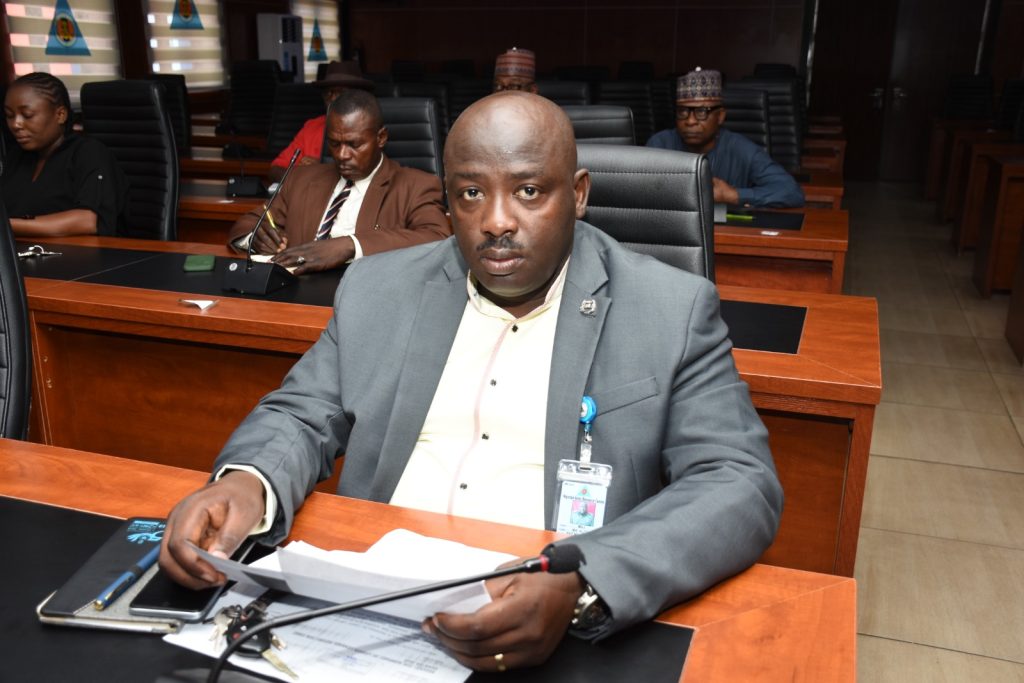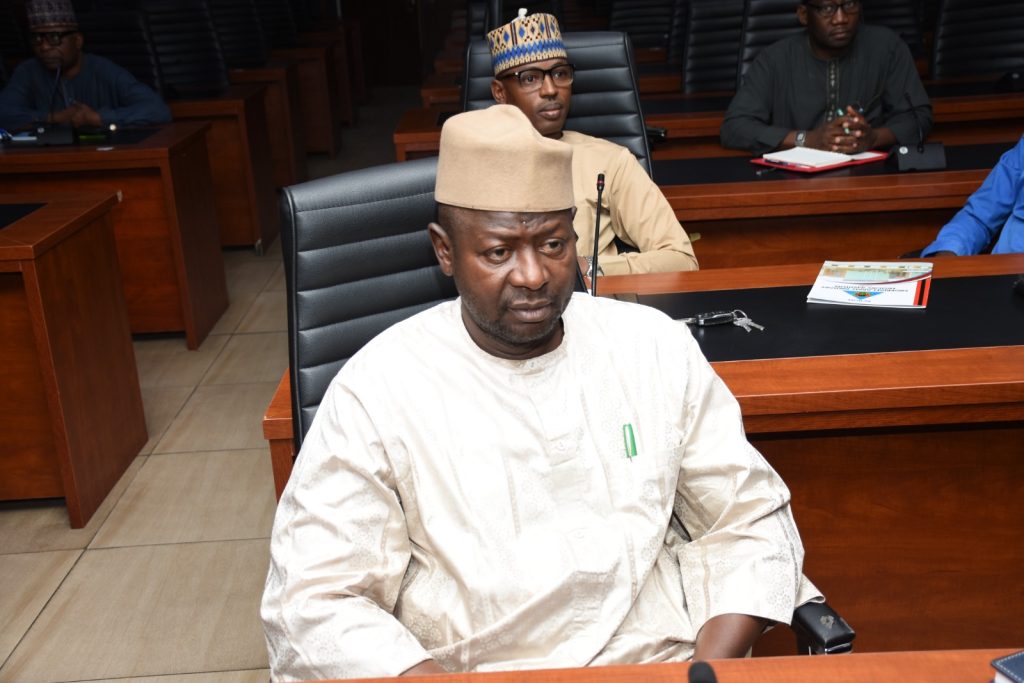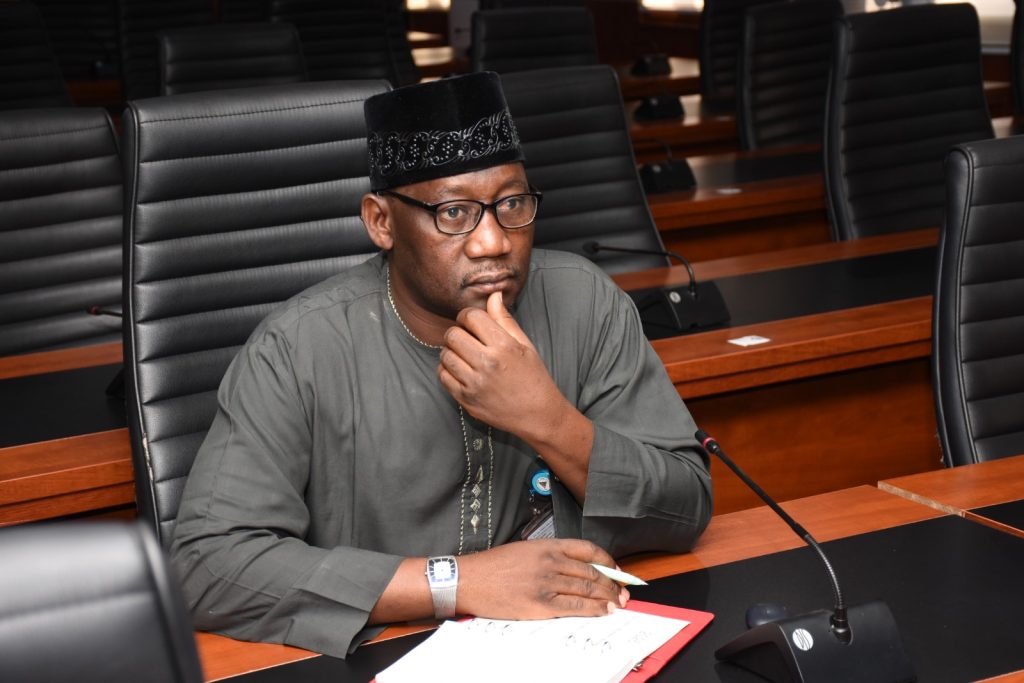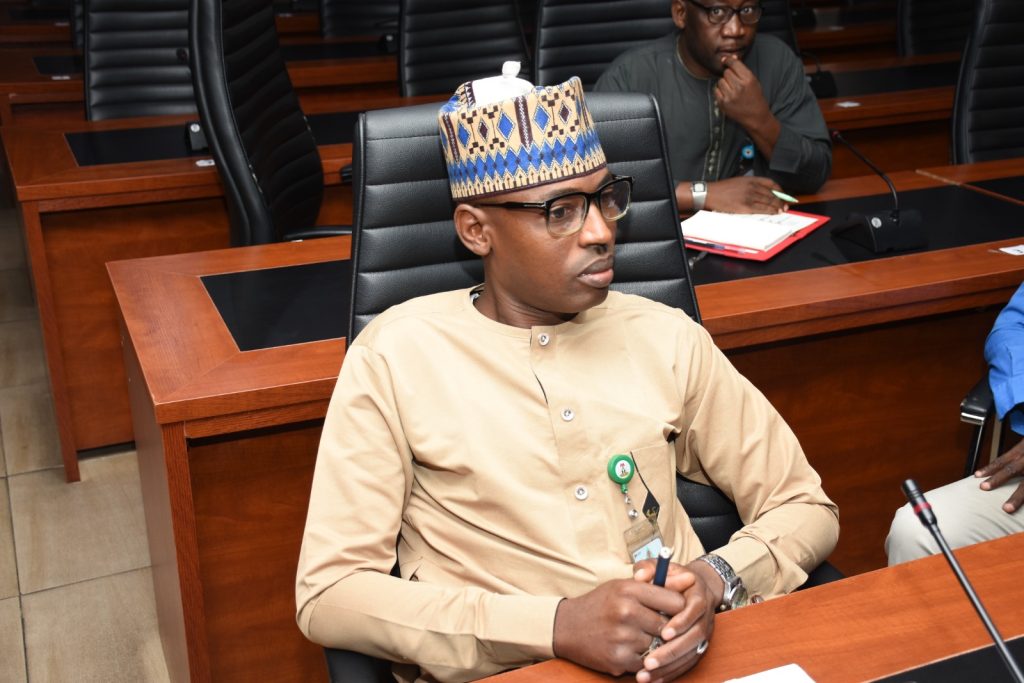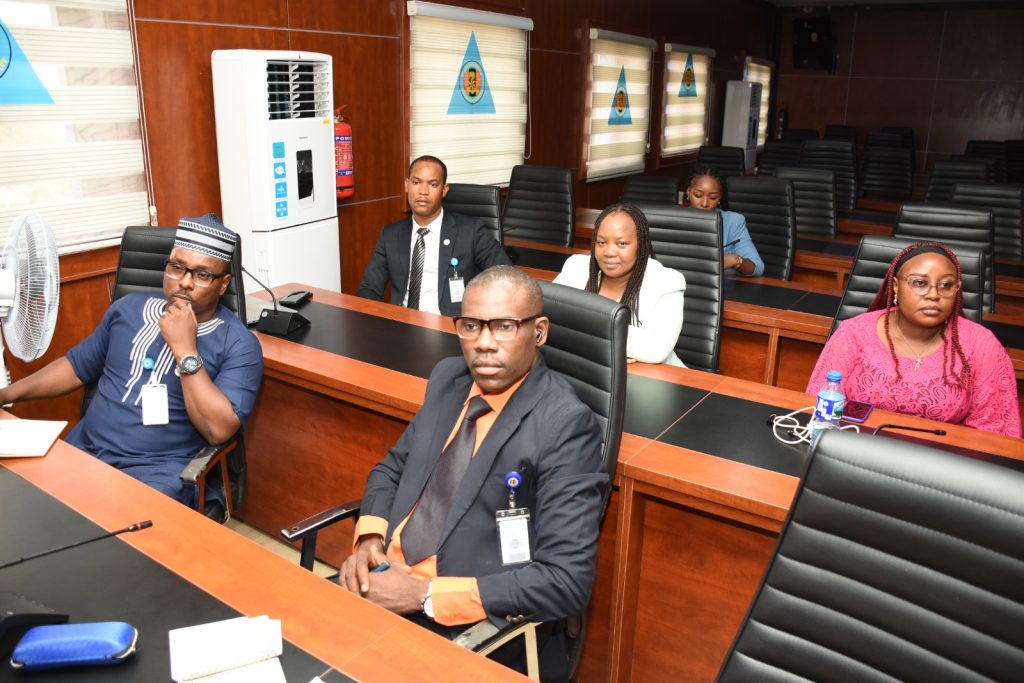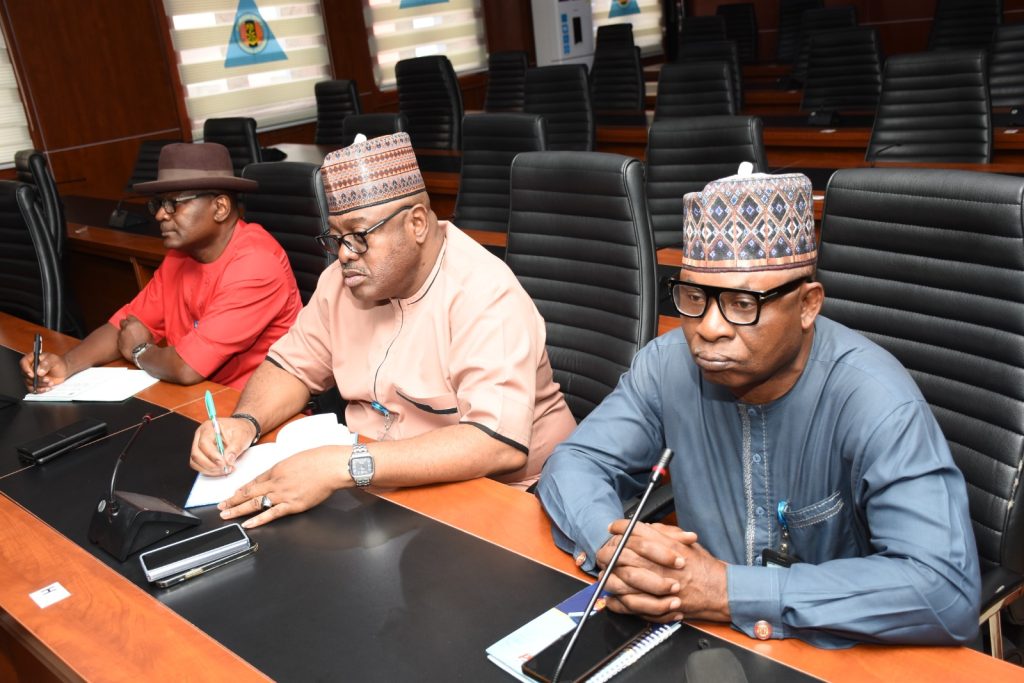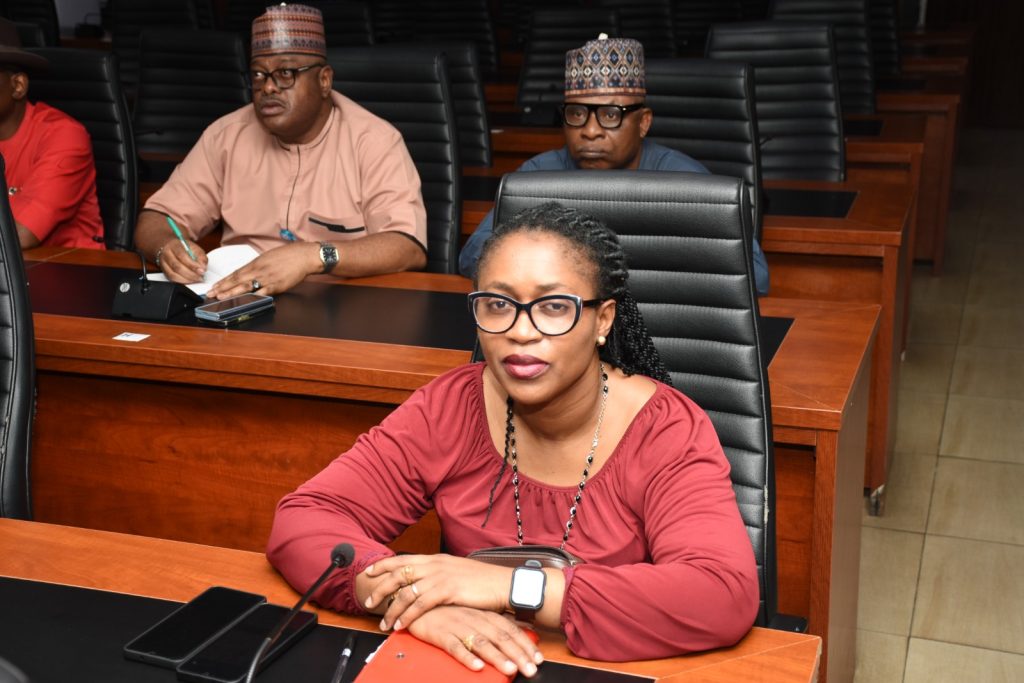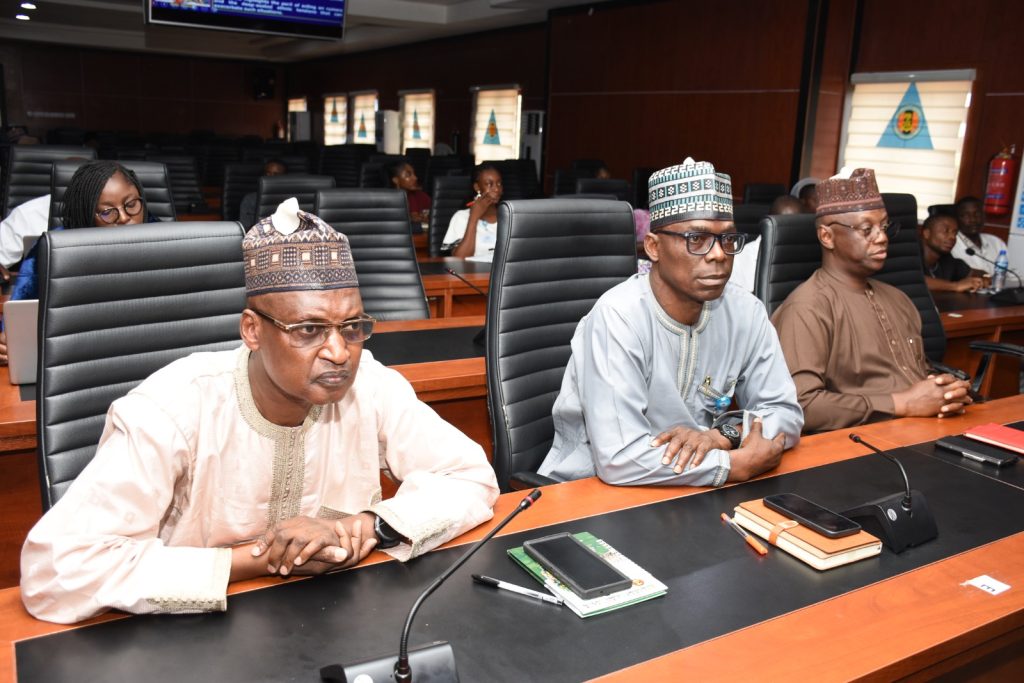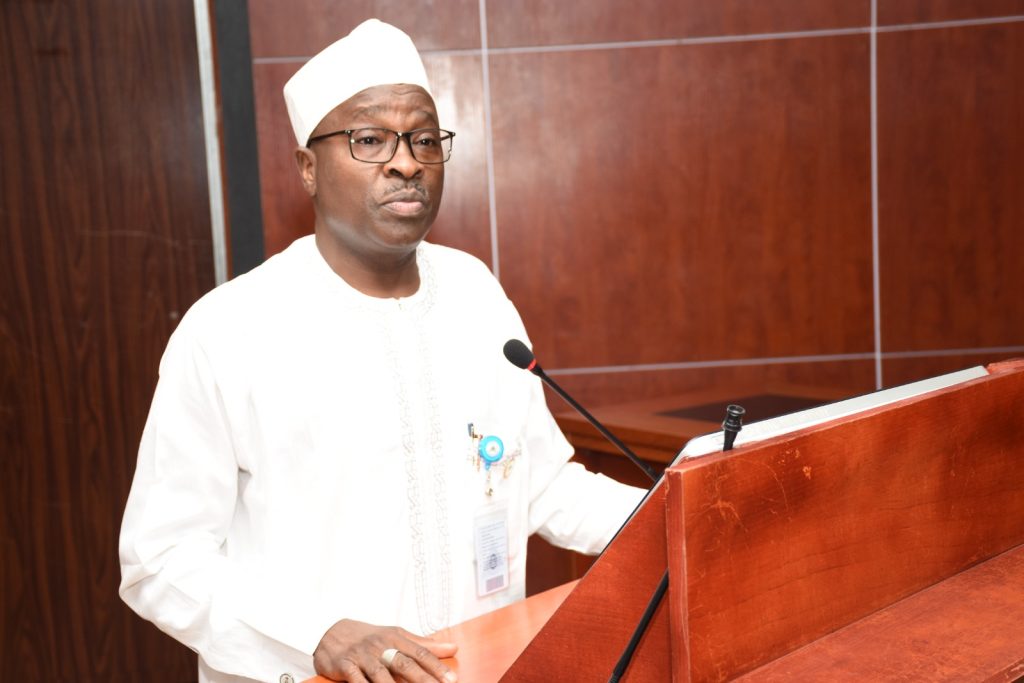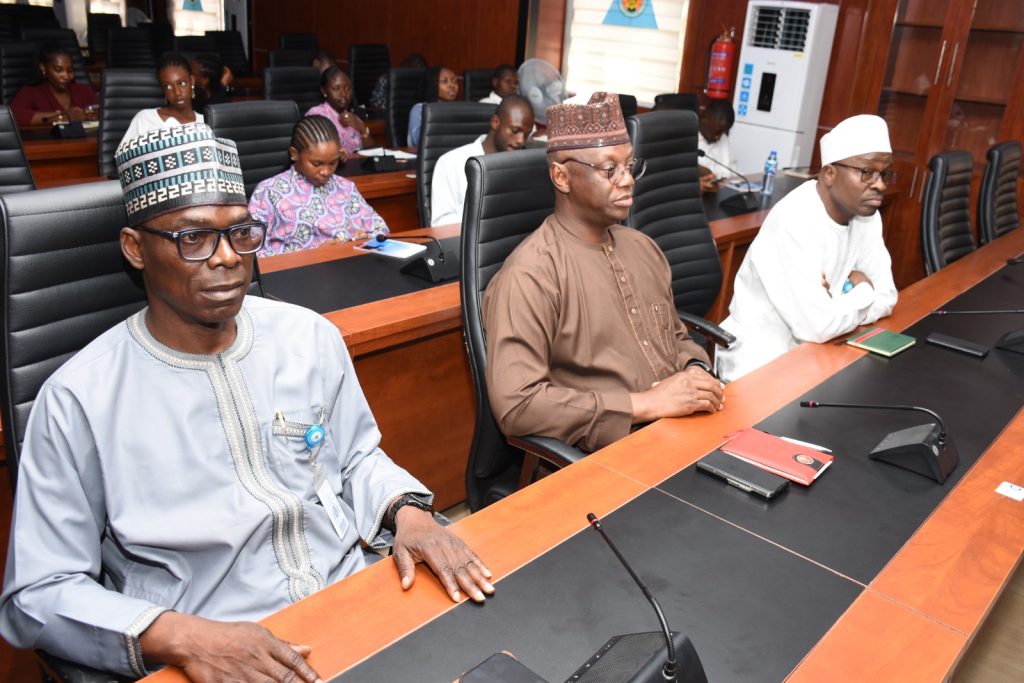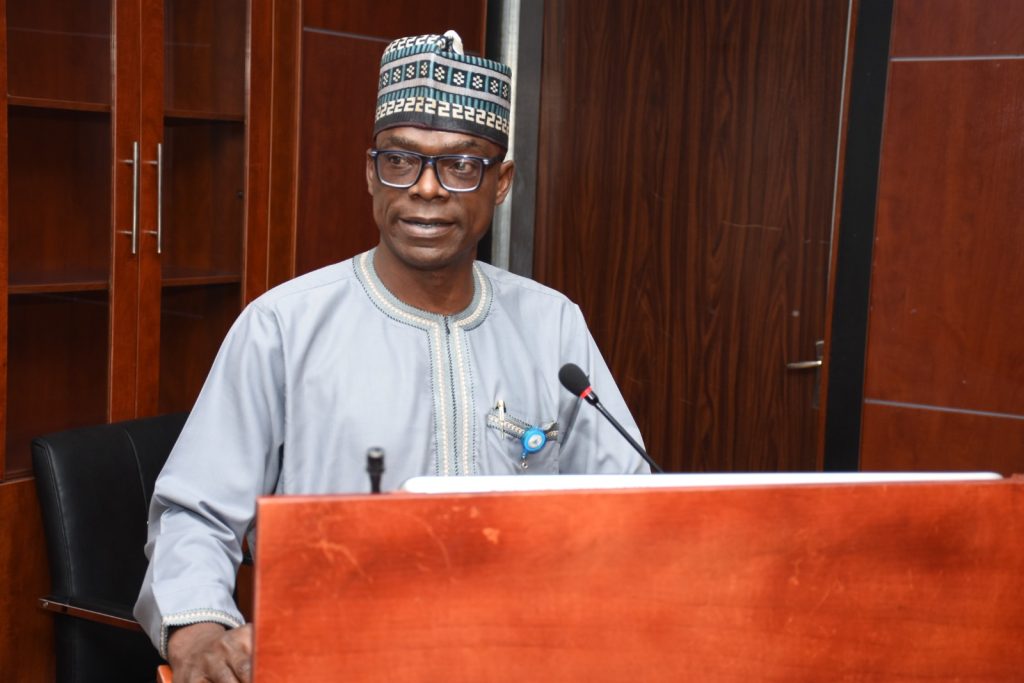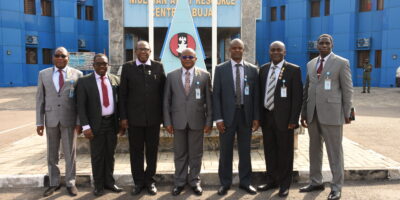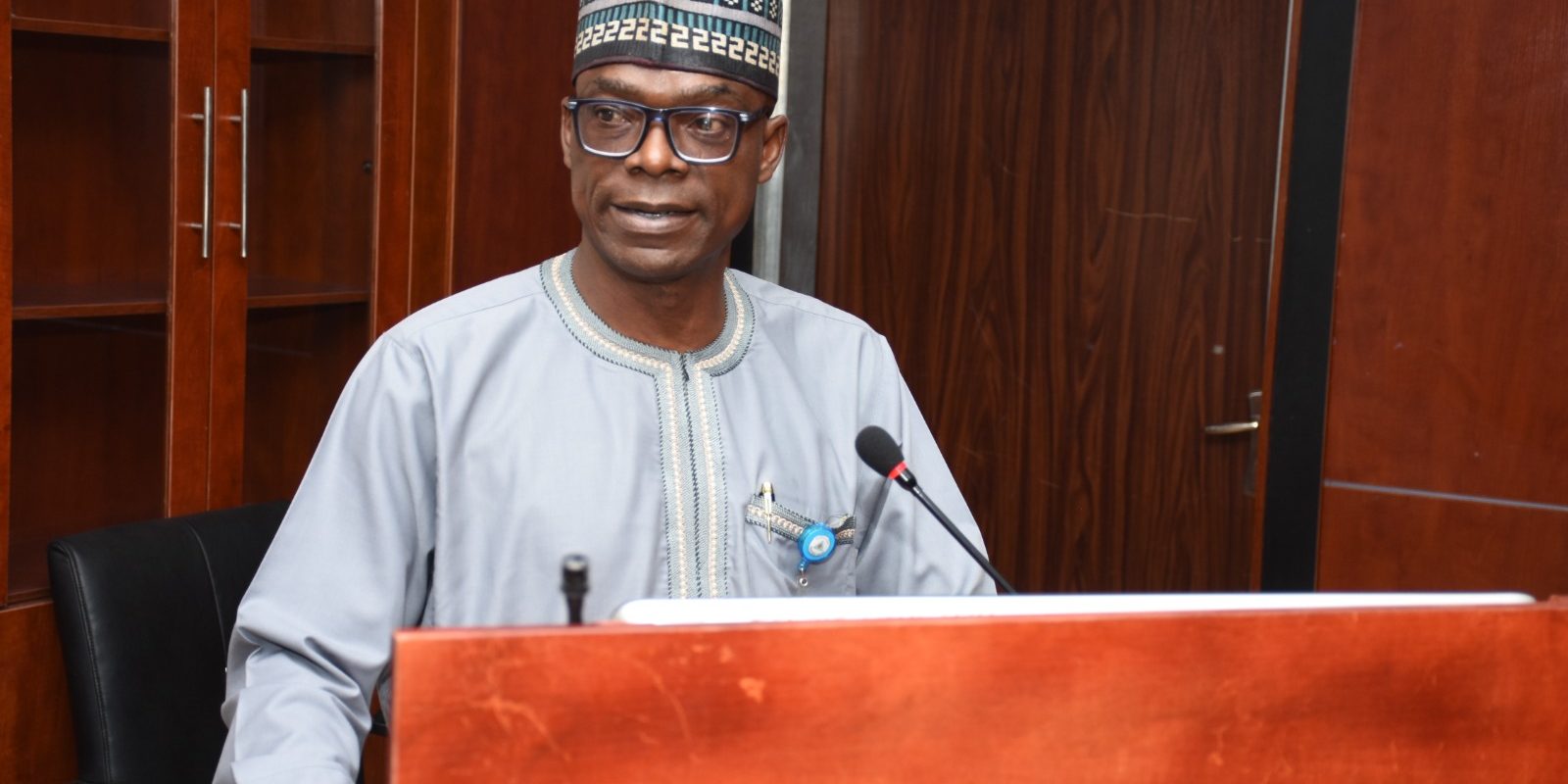Nigerian Army Resource Centre (NARC) Weekly Subject Experts’ Presentation was held at Hall C TY Buratai Block, Abuja. There were three presentations made by the Subject Experts on, United States of America Nigeria, and United Kingdom.
The first presentation was made by Maj Gen BA Tsoho subject expert on United States of America, his presentation Centred on US Justice Department Launches Anticompetitive Regulations Task Force. On 27 March 2025, the U.S. Department of Justice’s Office of Public Affairs announced the launch of the Anticompetitive Regulations Task Force. This initiative, spearheaded by the Antitrust Division, aims to eliminate state and federal laws that hinder free market competition, negatively impacting consumers, businesses and workers. The Task Force will focus resources on identifying and advocating for the removal of such barriers while inviting public input to support this mission. Assistant Attorney General Abigail Slater emphasized the importance of deregulation in fostering economic growth, aligning with President Trump’s Executive Orders 14192 and 14219. These directives mandate that federal agencies alleviate unnecessary regulatory burdens and review existing regulations that hinder small businesses and entrepreneurship. The Antitrust Division will contribute its expertise to support these efforts. Regulatory capture, where agencies serve special interests rather than the public, often results in higher costs and reduced market entry for small businesses. Excessive regulations increase compliance costs, restrict new products and protect monopolies, ultimately harming competition. Removing these barriers promotes innovation and ensures equal opportunities for all Americans to benefit from a dynamic economy. The Task Force will collaborate with federal and state agencies to revise or eliminate regulations that create obstacles in critical sectors such as housing, transportation, food and agriculture, healthcare and energy.
In his analysis and lessons for Nigeria Maj Gen BA Tsoho noted that, Nigeria has faced persistent challenges with excessive regulations, monopolistic practices, and bureaucratic inefficiencies that have hindered economic growth. As such, identifying and reforming these laws and policies is crucial to boosting economic vitality, attracting investment and fostering a more competitive marketplace. Market monopolies and restrictive policies have impeded Nigeria’s economic diversification. According to the Federal Competition and Consumer Protection Commission (FCCPC), these barriers limit consumer choice, increase operational costs for businesses and reduce market efficiency (FCCPC, 2023). Nigeria faces numerous economic challenges due to anticompetitive regulations. The World Bank (2022) notes that Nigeria’s position in the Ease of Doing Business Index remains low, ranking 131 out of 190 economies.
Excessive licensing requirements, prolonged bureaucratic processes, and corruption have discouraged investment. Sectors such as telecommunications, oil and gas and power distribution remain largely controlled by a few dominant players, making market entry difficult for smaller firms. These monopolies inflate costs for consumers and reduce service quality, limiting Nigeria’s economic potential. Obiora (2023) argues that regulatory inefficiencies have particularly hindered investment in the power sector, exacerbating Nigeria’s electricity crisis.
He recommended that, The FGN through the Ministry of Justice and all relevant agencies should implement comprehensive reforms to eliminate restrictive business regulations.
The second presentation was made by Maj Gen UN Babangida subject expert on Nigeria, his presentation discussed on how, Uromi killings: Families seek justice, Families of the 16 northern travellers that were lynched in the hours of 29th March at Uromi in Edo State have cried out for justice. The bereaved family members, in separate interviews with Daily Trust at the weekend, also shared harrowing details of the victims’ last moments. The travellers, who were said to be hunters, were on their way from Port Harcourt, Rivers State, to Kano for the Sallah celebration when some vigilantes intercepted and lynched them on suspicion that they were kidnappers. The daily correspondents visited Torankawa village in Bunkure Local Government Area of Kano State, where some of the victims hailed from and spoke to their relations. Other victims were from Garko, Kibiya and Rano villages (Daily Trust, 1 April 25).Torankawa village, which has been thrown into mourning since the incident, is known for hunting expeditions which are believed to be undertaken to test members’ masculinity and martyrdom (DailyTrust, 1 April 25). Statistical evidences suggests that Six of the slain hunters and a survivor are from the village. Among the deceased were Abdulkadir Umar, survived by two wives and his mother; Zaharaddeen Tanko, survived by a wife and four children and Haruna Hamidan, who left behind a wife and four children (Leadership, 3 April 25). Others were Usaini Musa, who had two wives and two children; Abdullahi Harisu, who got married four months ago; and Ya’u Umaru and Abubakar Ado, who were young bachelors. The leader of the hunters, Ibrahim Isa, a father of six, who is the sole survivor from the village, is said to be bedridden in an Edo hospital ( Leadership, 3 April 25).
In his analysis and lessons for Nigeria Maj Gen UN Babangida stressed out that, in recent times, the resort to mob justice reflects a profound distrust in law enforcement and judicial processes.
Communities, feeling vulnerable and underserved, may take the law into their own hands when they perceive that formal institutions are ineffective. It is crystal clear that the victims, primarily from northern Nigeria, were targeted based on unverified accusations and possibly their ethnic background. This highlights the peril of acting on rumors and the deep-seated ethnic tensions that can exacerbate such situations. Studies has shown that while community vigilante groups often emerge to fill security voids, their actions, when unregulated, can lead to severe human rights violations. The involvement of local security personnel in the Uromi incident raises concerns about oversight and accountability. It’s imperative to rebuild public confidence by enhancing the efficiency, transparency, and responsiveness of law enforcement agencies. Swift and fair adjudication of criminal cases can deter communities from resorting to self-help measures. It is imperative for Nationwide campaigns needed to educate citizens about the dangers and illegality of mob justice.
Emphasizing the importance of due process can help mitigate instances of collective violence. Accordingly, Community-based security outfits should operate under clear guidelines, receive proper training, and be closely monitored to ensure they complement formal security agencies without overstepping their bounds.
He recommended that, Both local, national and international bodies such as NGOs should educate communities on the dangers of mob justice and promote legal dispute resolution and also Legislate to establish a structured system base, where law enforcement collaborates with communities under official supervision.
The third presentation was made by Maj Gen MT Jinadu subject expert United Kingdom his presentation focused on, Several Businesses in Southeast London Were Named as Deliberate Tax Defaulters by HMRC.
On 4 April, 2025, The News Shoppers reported that His Majesty’s Revenue and Customs (HMRC) has published a list naming several businesses and individuals in southeast London as deliberate tax defaulters. The list includes parties penalized for intentionally submitting erroneous tax returns or failing to meet their tax obligations, with each case involving tax amounts exceeding £25,000.
The list highlights multiple businesses from the southeast London area. Among them is Ammos London Limited, a consultancy previously operating out of Orpington and Bexley. HMRC revealed that the company defaulted on tax between April 2022 and June 2023, owing £1,284,465 in taxes and receiving a penalty of £899,125.50. Also featured is Kent Movements Ltd, a waste collection firm formerly based in Dartford and Sidcup. The company defaulted between May 2021 and October 2022, accumulating a tax debt of £175,008 and incurring a penalty of £122,506.Jasmin P Limited, which traded as ‘Jasmine Garden’ in Lewisham, was named for tax defaults from October 2020 to May 2023. HMRC reported that the takeaway owed £145,785 and was fined £91,115.62. LD. Builders Limited, formerly known as Cerda Limited, a construction firm operating in London, also appeared on the list. The company defaulted between February 2017 and January 2021, with HMRC citing a tax debt of £72,663.42 and a penalty of £33,606.73
In his analysis and lessons for Nigeria Maj Gen MT Jinadu pointed out that, the inefficiency and corruption in tax administration in Nigeria could be responsible to the low tax-to-GDP ratio, a measure of the country’s Gross Domestic Product which was revised to 10.86% in 2021, a significant increase from the previously reported 6%. Whereas the Africa’s average tax-to-GDP ratio is 16.5% making Nigeria one of the lowest globally, with the IMF eLibrary stating that in 2021, Nigeria’s general government revenue was 7.3% of GDP, ranking 191st out of 193 countries.
While businesses recognize the necessity of taxation, systemic inefficiencies and the perceived misuse of tax revenues continue to erode trust in the system. Nigeria’s tax system has evolved significantly from the colonial era when taxation was imposed primarily for administrative convenience. When Nigeria gained its independence in 1960, various tax reforms were introduced. The Companies Income Tax Act (CITA) of 1979, the Personal Income Tax Act (PITA) of 1993, and the Value Added Tax (VAT) Act of 1993 are key legislative frameworks governing taxation (Odusola, 2016). Despite these efforts, the tax system is often criticized for its complexity, excessive bureaucracy, and multiple taxation layers imposed by federal, state, and local governments. The Federal Inland Revenue Service (FIRS) is charged with the responsibility of overseeing corporate tax collection, while the State Internal Revenue Services (SIRS) manages state-level tax obligations. However, overlapping jurisdictional powers often lead to inefficiencies, increasing the compliance burden on businesses (Adebisi & Gbegi, 2013). Many businesses, particularly Small and Medium Enterprises (SMEs), struggle to navigate the complex tax landscape, further discouraging compliance.
He recommended that, The National Assembly should include in the new tax law for the proposed NRS to publish in newspapers annually the details of deliberate tax defaulters and the penalty amounts.
